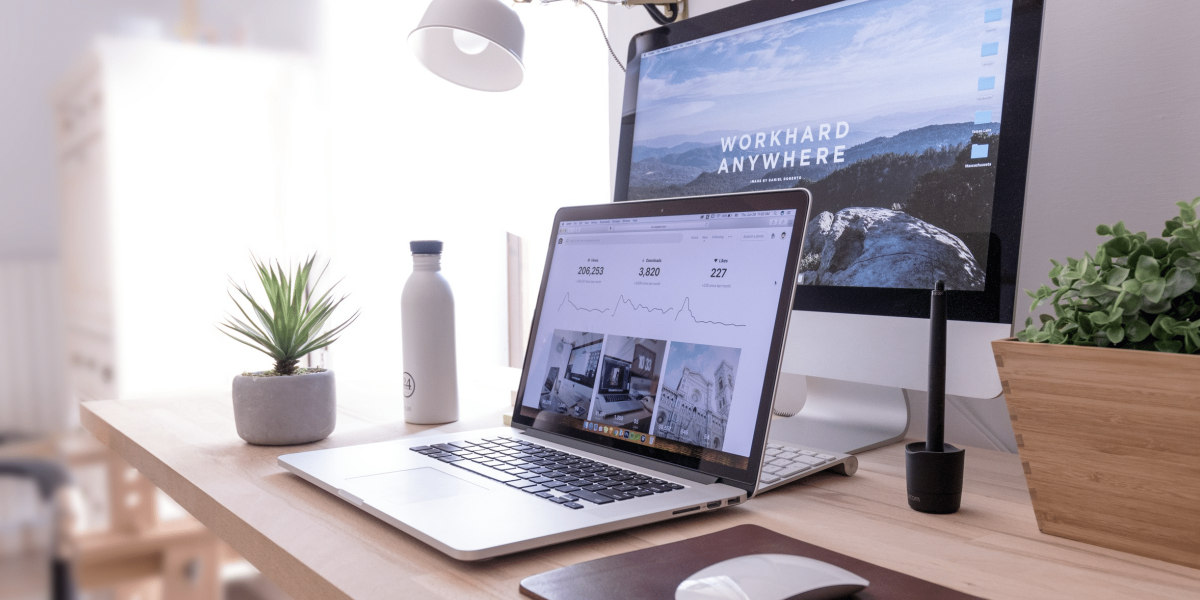Why Does Workspace Clutter Affect Your Focus?
It’s no secret that clutter can disrupt productivity. A disorganized workspace bombards your brain with excess stimuli, making it harder to concentrate. When every surface is piled with papers, cables, and knick-knacks, your mind struggles to focus on the task at hand. Clutter creates visual noise, leading to stress and mental fatigue.
Studies show that a messy environment can also reduce your ability to process information efficiently. By clearing your workspace, you give your brain the breathing room it needs to think clearly. This simple change can significantly boost your focus and overall productivity.
What Are the Benefits of a Minimalist Workspace?
A clutter-free workspace isn’t just visually appealing—it comes with tangible benefits. When your desk is neat and organized, you spend less time searching for misplaced items, which means fewer distractions and more time to focus.
A minimalist workspace also promotes a calm and professional atmosphere. It’s easier to feel motivated and stay on track when your surroundings are clean and intentional. Plus, reducing clutter can improve your mood and reduce stress, helping you approach tasks with a clearer mind.
Additionally, a minimalist setup can foster better collaboration. Colleagues and team members feel more comfortable working in a clean and organized environment, improving communication and efficiency. Whether it’s a home office or a shared workspace, keeping things tidy creates a positive atmosphere for everyone.
How Can You Start Decluttering Your Workspace?
Clearing a cluttered desk might feel overwhelming, but taking small, actionable steps can make the process manageable. Here are some tips to get started:
- Sort and Purge: Begin by removing everything from your desk and sorting items into categories: keep, discard, or relocate. Be ruthless—if you haven’t used something in months, it’s probably unnecessary.
- Invest in Storage Solutions: Use organizers, shelves, or drawers to keep essential items within reach but out of sight. Cable management tools are great for taming tangled wires.
- Adopt a One-Touch Rule: Avoid letting papers pile up. Address items immediately: file them, take action, or recycle them.
- Limit Personal Items: While a photo or two can personalize your space, too many decorations can add to the clutter. Keep it simple.
- Clean Regularly: Make it a habit to tidy your desk at the end of each day. This practice ensures that clutter doesn’t accumulate over time.
- Evaluate Regularly: Set aside time every month to reassess your workspace and remove items that are no longer needed.
Why Is Ergonomics Important in Workspace Design?
A clutter-free desk is just one piece of the puzzle. Ergonomics plays a crucial role in creating a productive environment. Poor posture and uncomfortable setups can lead to physical discomfort, which distracts from your work. Ensure your workspace is ergonomically sound by adjusting your chair so your feet rest flat on the floor. Position your screen at eye level to reduce neck strain, and keep your keyboard and mouse at a comfortable distance to avoid wrist fatigue. Adequate lighting is also essential to reduce eye strain and improve focus. Combining ergonomics with minimalism creates a workspace that supports both your physical and mental well-being.
How Can Technology Help You Stay Organized?
Digital tools can be a lifesaver when it comes to maintaining a clutter-free workspace. Apps and software designed for organizations can help reduce the need for physical items like sticky notes, calendars, or notebooks. Consider using task management apps like Trello or Asana to organize tasks and track deadlines. Cloud storage services like Google Drive or Dropbox eliminate the need for physical file storage, keeping everything accessible and tidy. Replace paper notebooks with note-taking apps like Evernote or OneNote. Automation tools can also help by handling repetitive tasks, freeing up time and mental energy. By integrating technology, you can streamline your workflow and keep your workspace free from unnecessary clutter.
What Habits Help Maintain a Clutter-Free Workspace?
Decluttering your desk is only half the battle. To keep your workspace organized, you need to adopt habits that prevent clutter from returning. Avoid using your desk as a catch-all for non-work items, and dedicate time each week to evaluate and declutter your space. Opt for digital alternatives whenever possible to reduce paper clutter. Only keep items on your desk that you use daily, and develop a routine to start and end each workday by tidying up your workspace. Consistency is key. By forming these habits, you can enjoy the benefits of a clutter-free workspace lon
Can a Clutter-Free Workspace Enhance Creativity?
Absolutely! While some people thrive in a controlled mess, most find that a clear workspace fosters creativity and focus. When your environment is tidy, your mind is better able to think freely and generate ideas. The absence of distractions allows you to channel your energy into brainstorming and problem-solving.
A clutter-free workspace doesn’t mean sacrificing personality. You can still add inspiring elements like artwork, plants, or motivational quotes—just keep them minimal to maintain balance. The goal is to create an environment that inspires without overwhelming.
For creative professionals, having a clean slate can also encourage innovation. A clutter-free desk becomes a blank canvas for ideas, helping you approach challenges with a fresh perspective.
What’s the First Step Toward a Clutter-Free Workspace?
Start small. Choose one area of your desk to organize, whether it’s your drawer, your desktop, or even your cable setup. Tackling one section at a time makes the process less daunting and sets you up for success.
Once you experience the benefits of a tidy space, you’ll be motivated to continue. A clutter-free workspace isn’t just about aesthetics; it’s a powerful tool for achieving maximum focus and productivity.
By designing a workspace that’s both functional and visually appealing, you create an environment that supports your goals and encourages a positive mindset. Remember, the key to maintaining focus lies in the balance between organization and simplicity. With a little effort, your workspace can become a hub of creativity, efficiency, and inspiration.







